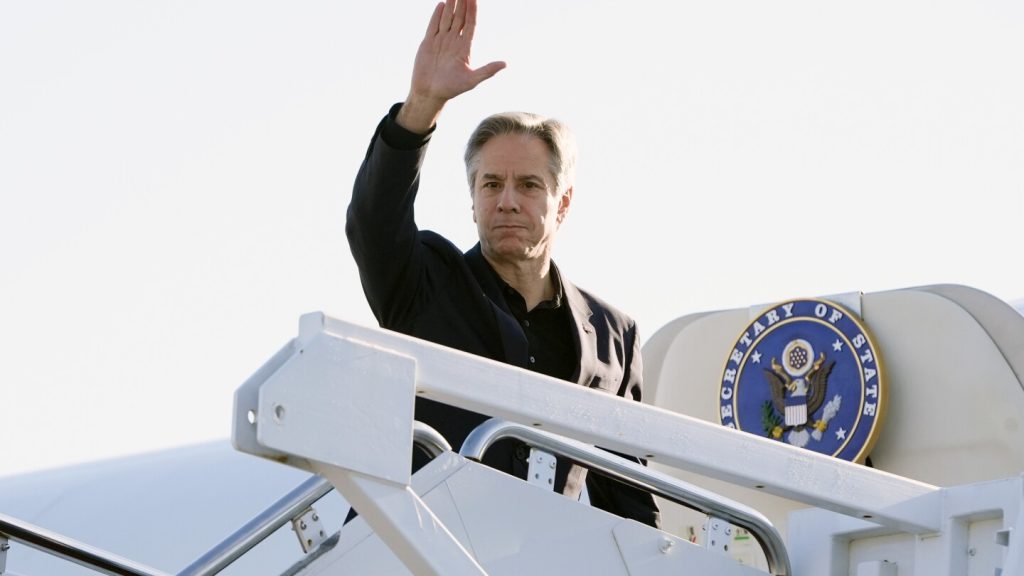Secretary of State Antony Blinken has embarked on a critical trip to China, armed with a strengthened diplomatic hand following Senate approval of a foreign aid package. This package includes billions of dollars in assistance to Ukraine, Israel, and Taiwan, as well as a mandate for TikTok’s China-based parent company to sell the social media platform. This move has further complicated the already strained relationship between Washington and Beijing, but Blinken’s visit is a sign that both sides are willing to discuss their differences.
The aid package allocates $8 billion to counter Chinese threats in Taiwan and the broader Indo-Pacific region, while giving ByteDance, TikTok’s parent company, a deadline to sell the platform. China has strongly opposed these measures, viewing U.S. support to Taiwan as a provocation. Additionally, the bill provides significant aid to Israel for wartime assistance and humanitarian relief to Palestinians in Gaza, as well as support for Ukraine to defend itself against Russia’s invasion. The Biden administration has been critical of China’s response to the conflict in Gaza and its support for Russia’s military-industrial sector.
The complex relationship between the U.S. and China is further exacerbated by disagreements over Taiwan and the South China Sea. Washington has expressed concern over Beijing’s increasingly aggressive actions in these regions. The U.S. has condemned Chinese military exercises threatening Taiwan and provided military support to the island, infuriating China. Blinken aims to emphasize the importance of maintaining peace and stability across the Taiwan Strait during his visit, while addressing China’s actions in the South China Sea that hinder maritime activities of neighboring countries like the Philippines and Vietnam.
The ongoing war in Ukraine is a major focus of Blinken’s visit, as the Biden administration believes China’s support has empowered Russia to escalate its attacks in Europe. Blinken has criticized China for engaging in extensive trade with Russia while fueling conflict in Ukraine. The U.S. has urged China to use its influence with Iran to prevent further escalation in the Middle East, particularly during the Gaza war. Issues of human rights in Xinjiang, Tibet, and Hong Kong, as well as the supply of fentanyl precursors, also strain the relationship between the two countries.
Efforts to combat the production and export of fentanyl precursors from China have seen some progress, but more action is needed according to U.S. officials. China has faced criticism for its human rights record and detention of American citizens by the State Department. Despite China’s rejection of these criticisms, Blinken plans to raise these issues during his discussions with Chinese officials. The two countries are also at odds over the trade of fentanyl precursors, with a working group established to address this issue. Continued progress in cracking down on illicit fentanyl production in China is crucial to demonstrating a commitment to combatting this problem.


